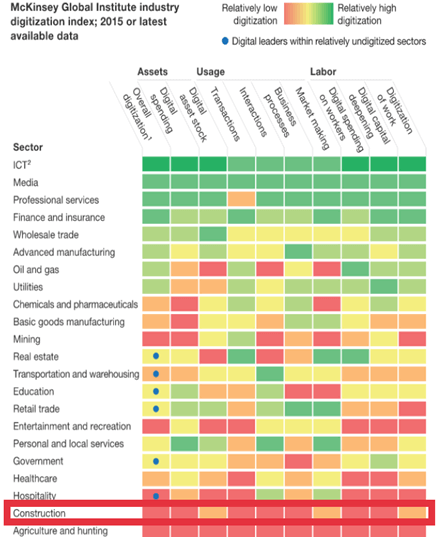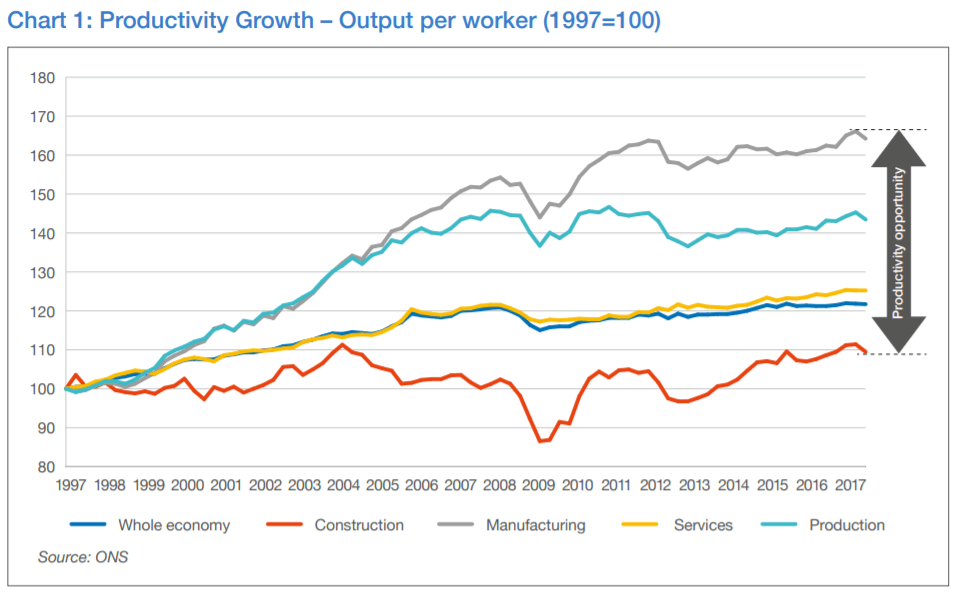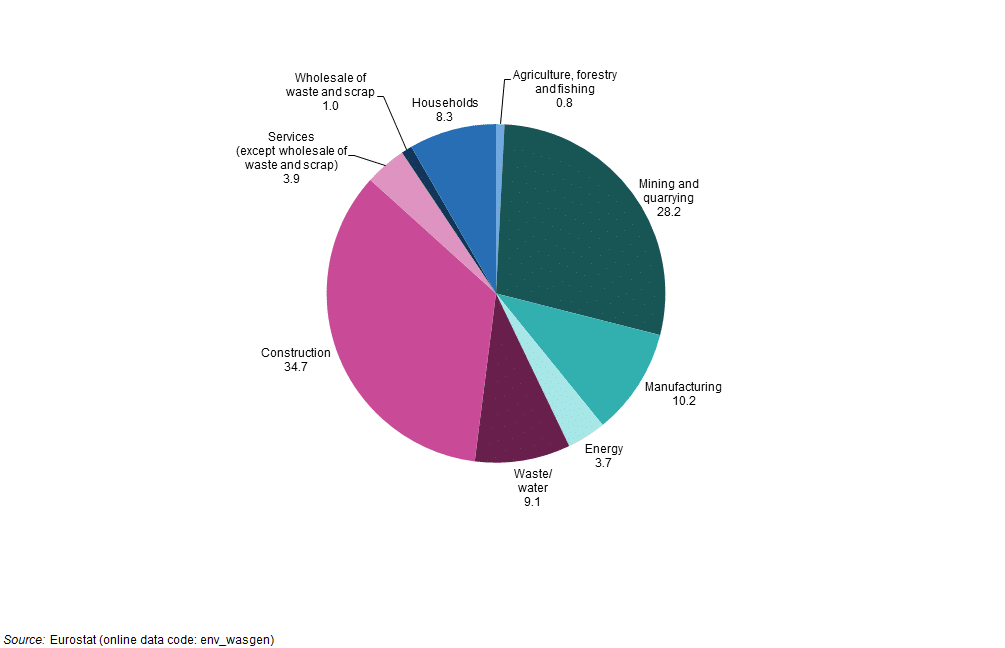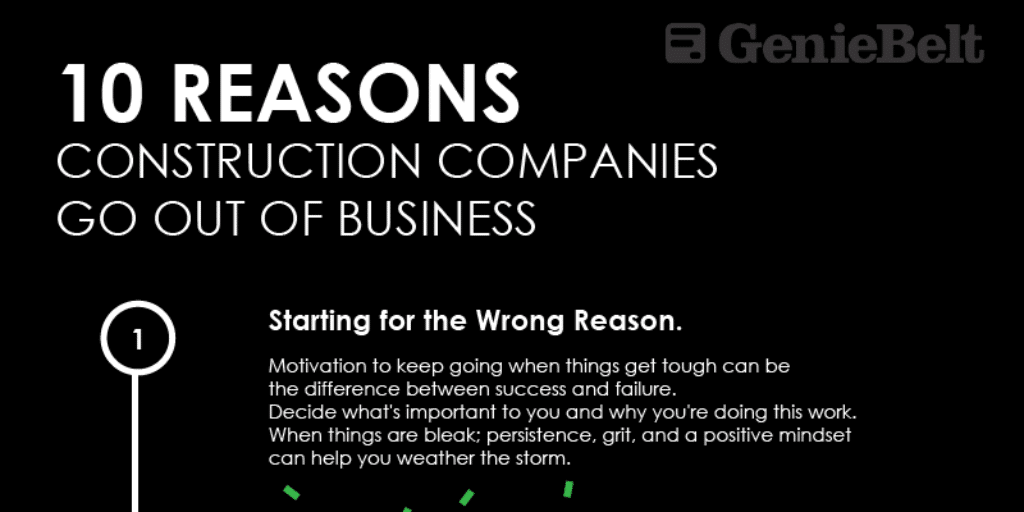Why collaboration in construction is key
For many players in construction, the industry needs to change the way stakeholders communicate and, by extension, collaborate with each other.
Mistrust and punitive contracts torment the value chain as a result of the absence of a clear communication path throughout it.
Free ebook: Why WhatsApp and Excel aren’t enough for running complex construction projects
The first thing you do when you get together to build something is to sign a contract about how you are going to solve things when you go to court. But it shouldn’t be like that.
The new normality that was violently introduced not only to our industry but also to our societies, due to COVID-19, calls for a new approach around project management. To achieve that, the role of digital technologies is of paramount importance.
But it should not be digital just for the sake of digital. Now more than ever, construction needs to rely on tools that are industry specific and are able to support a new way of collaboration and sharing of information across both teams and projects.
Let’s talk numbers
There are many problems in the way that construction communicates and collaborates at the moment. Despite the fact that we are talking about a $10 trillion industry, the numbers speak for themselves. In a nutshell, here are some of the most noteworthy statistics which depict the troubling situation that construction has got into:
- 1% IT spend: Construction is one of the least digitised sectors. Based on McKinsey’s index of digitisation (2015), only agriculture and hunting are less digitised than the building sector.

- Source: McKinsey & Company
- 30% wrench time: The efficiency rate in construction is concerningly low. During the last five decades, productivity in construction declines by 0.3% on average on a yearly basis. Only in the US, the labor productivity growth rate doesn’t exceed 0.1% (the lowest rate compared to other similar industries).

- Source: McKinsey & Company
- 30% rework rate: Rework is also hurting the industry. Broken communication is one of the most essential factors for it. Reworks can consume between 7% to 15% of the total budget in new construction.
- Humongous waste rates: According to Eurostat, the building sector is accountable for 34.7% of the overall waste in Europe. Waste minimisation can be the outcome of better collaboration and communication.

- Source: Eurostat
It goes without saying that construction is under extreme pressure. However, the numbers show that just by focusing on improving the way we communicate and build we can revolutionise the industry and get the most out of construction’s great potential.
How to improve collaboration in construction
After taking a look at the numbers, it’s time to dig a little deeper into what improving collaboration in construction really means.
As we already mentioned, it’s much more than implementing a digital tool in your project. It’s about combining in a seamless way the three following elements: people, tools, and processes. All three are inextricably linked with each other and have to work together in harmony.
In an effort to help you unlock the full potential of your projects, we present below the four main pillars of collaboration for every construction project:
1. Implement construction-specific tools
We have mentioned in the past that construction is addicted to Excel spreadsheets, email threads, and WhatsApp notifications. All these tools, great as they are, they aren’t enough for managing your construction projects.
The reason is simple. They are unable to provide you with full site visibility in real time. Simply put, they lack the connection between the schedule and the updates that arrive from the field.
Read more: Construction progress tracking: See more, finish faster
As a result, project managers end up receiving crucial information without having any idea about the true impact of this update on both the short and long-term planning.
This is why implementing a construction-specific tool is so crucial. It will allow you to regain control and keep everyone in your project facing the right direction.
2. Use a single data source
Project managers tell us that in many cases they have to use up to 40% of their time every day writing progress reports, collecting information from multiple sources, or being on the phone with different stakeholders.
This information overload can often lead to misunderstandings, costly mistakes, and never-ending legal disputes. In other words, a fragmented value chain can eventually fuel downtime in your projects and open the door to serious delays.
By gathering all project communication in a single source of truth, you offer all teams the opportunity to make informed decisions faster while you remain protected against claims.
On top of that, you no longer have to look for critical information left and right. Instead, you can quickly search and retrieve the information you need and focus your attention on where it can really make a difference.
3. Link your quality management to your project planning
Connecting your safety and quality processes to the master schedule can save you from many unpleasant surprises during handovers.
Again, though, the use of an industry-specific digital tool is necessary if you want to start resolving HSE issues as they appear instead of dealing with them at the end of the project.
Find out more: How to avoid construction rework and build cheaper
Resolving non-conformities faster will allow you to complete your projects faster and will eventually have a very positive impact on how you collaborate with your teams. Fewer mistakes will signify fewer claims and as a result a blame-free construction process.
But even in the case where a commercial claim emerges, a construction-specific tool, like LetsBuild for example, will function as your objective data source across the entire project enabling you to find and recover the information you need to prevent legal conflicts and additional costs.
4. Improve your processes with data from the field
By now it’s evident that visibility is key for increasing collaboration in construction. But there is one more reason you need all this data from the field collected in a single source of truth. That is standardisation.
Being able to improve your current and future processes based on intelligence collected from the field can give you back full control of your projects and allow you to create a dynamic collaboration environment for all stakeholders you are working with.
Moreover, it will help you introduce accurate KPIs so that you can see for yourself what works, what doesn’t, and why. Like that, you can plan ahead, mitigate risk, and make better decisions for your teams.
Align everyone. Work smarter.
Focusing on strategic collaboration in construction can be the first step for a sector without mistrust and costly claims.
To make that happen, though, you need a full overview of what’s happening on site and direct communication with the teams that are involved in your projects.
This is why construction-specific tools and a single data source are so important for your success. They are your eyes on the site and they can give you the feedback you need in order to prevent mistakes, reduce downtime, and increase profitability.
If you want to learn more about how you can deliver successful projects sooner without compromising quality, we invite you to download our free ebook just by clicking on the link below:





